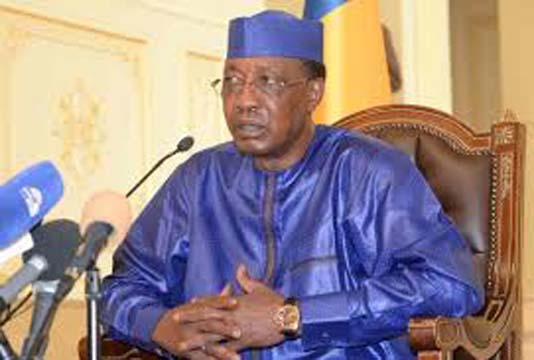N’DJAMENA, Aug 10, 2019 (BSS/AFP) – At least 37 people have been killed in
fresh fighting this week between farmers and herders from rival ethnic groups
in Chad, President Idriss Deby said on Friday.
The violence broke out over three days in the province of Ouaddai, a
strategic area on the eastern border with Sudan, he said.
“The intercommunal conflict has become a national concern,” Deby told a
press conference to mark the country’s independence day. “We are witnessing a
terrible phenomenon.”
Eastern Chad is in the grip of a cycle of violence between nomadic camel
herders — many from the Zaghawa ethnic group from which Deby hails — and
sedentary farmers from the Ouaddian community.
Drought and population growth have aggravated the conflict.
The latest fighting erupted on Monday in the Wadi Hamra district after a
rancher was found dead, said a local charity representative who asked not to
be named for their safety. Three more killings followed that discovery, the
representative said.
Fresh violence flared up at another nearby location the following day, a
local tribal official told AFP.
“The communities clashed with firearms. The fighting was particularly
deadly,” the official said, saying that at least 25 people were killed.
One hospital source told AFP the death toll was as high as 44.
The clashes on Tuesday were linked to the death of the young rancher,
historian and head of the Centre for the study of prevention of extremism in
Chad, Ahmat Yacoub Dabio, told AFP.
Describing the clashes, Deby said that police sent to the scene came under
fire.
“Those with guns are not hesitating to shoot the police. We must wage a
total war against those who carry weapons and are killing people,” he said.
Deby said he would visit the area in the future, without saying when.
– Guns from Sudan –
Last month Deby, who has been in power for almost three decades, hinted
that military courts may be reintroduced in a bid to curb the unrest, a
suggestion denounced by the country’s opposition.
Deby said the decades-long conflict over land in Ouaddai had spread since
the start of this year to other regions where previously the communities
lived side by side in a an “exemplary” manner.
He cited the eastern province of Sila where he said more than 40 people had
been killed since January.
Deby blamed the surge in violence partly on an influx of guns to Chad from
conflict zones in neighbouring Libya, Central African Republic and Sudan,
where a protest movement ousted the president in April.
“The government has created special disarmament units. We take away the
weapons, but the next day more arrive.”
Legislative elections in Chad are scheduled to take place by the end of the
year.
They have been postponed several times since 2015 as Deby, who grabbed
power in 1990, looks to maintain his grip on the country.



